Basic deal is, we have a custom built "kickstart" for our projects. For this we are looking at redoing the user control. I know there are a lot of questions out there about general rbac, but I cannot find any on hierarchical rbac?
Our requirements are:
- Roles can be assigned to group permissions
- If the role does not have a permission entry then it is automatically denied
- A user can be given overriding permissions
- A users overriding permissions is either a grant or deny
- If a user is explicitly denied a permission no matter what roles say "granted" the override wins.
- Users can have multiple roles
- Roles can have hierarchy
- Roles can inherit from other roles (e.g. A "Forum Super Moderator" role is a "Forum Moderator", and a "System Maintainer", and the "Forum Moderator" role already inherits from the "Forum User" role )
- Roles that inherit from another role that deny or grant a privilege override their child permission
- Permissions are grouped by "module" (e.g. a "Blog" module can have an "edit entry" permission, and a "Forum" module can have an "edit entry" permission and they will not clash)
- There is a "Everything and Anything" permission that automatically grants full access
So, with those requirements out of the way, here's how I am thinking of doing it.
Table: Users
id | int | unique id
Table: Roles
id | int | unique id
--------------|---------------------------------------------
title | varchar | human readable name
Table: Permissions
id | int | unique id
--------------|---------------------------------------------
module | varchar | module name
--------------|---------------------------------------------
title | varchar | human readable name
--------------|---------------------------------------------
key | varchar | key name used in functions
Table: Role_User
role_id | int | id from roles table
--------------|---------------------------------------------
user_id | int | id from users table
Table: Permission_Role
id | int | unique id
--------------|---------------------------------------------
permission_id | int | id from permissions table
--------------|---------------------------------------------
role_id | int | id from roles table
--------------|---------------------------------------------
grant | tinyint | 0 = deny, 1 = grant
Table: Permission_User
id | int | unique id
--------------|---------------------------------------------
permission_id | int | id from permissions table
--------------|---------------------------------------------
user_id | int | id from users table
--------------|---------------------------------------------
grant | tinyint | 0 = deny, 1 = grant
Well, actually that's half of it, that part I am sure about, the part I am getting stuck on is the hierarchical roles.
So, how do I design this? My idea is that to save on the database queries I am just going to build the permission matrix on login and save it to session so the queries don't have to be too simple as they are only run once for each login.
The issue I see is that, I am going to need to know the hierarchy of the roles so I can resolve the inherited roles permissions before I resolve the inheriting.
The user permissions is the easy part, the per-user permissions are essentially the finally resolved group.

